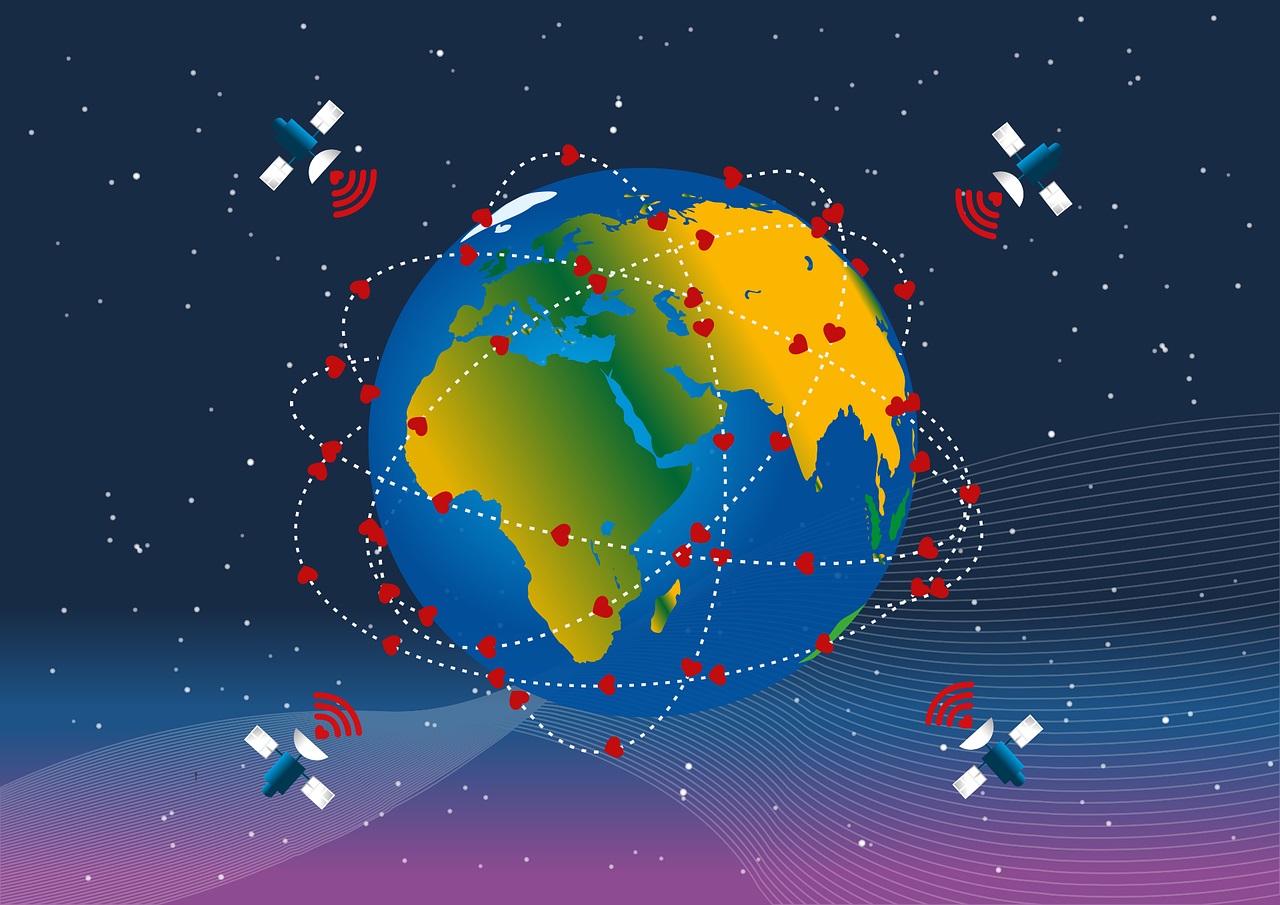Satellite internet is the ultimate wireless connection in a literal sense since it involves sending signals to space before they get to you. It’s more likely to be a preferred option in rural or more sparsely populated areas without too many other internet options. The other one is usually dial-up, which is still used by nearly 2 million people in the United States. Satellite internet is essentially a three-step process that works like this:
- Your internet service provider (ISP) sends a signal to a dish in space.
- The signal is relayed to your home.
- Each request you make on your end goes to the dish in space and then your ISP’s hub before getting to you.
Dish, Frontier, and HughesNet are among the leading satellite internet service providers in the U.S. If this is the type of internet service you happen to be considering, keep reading for a rundown of the pros and cons associated with satellite internet.

Pros
- No phone line: For starters, there’s no need to rely on a phone line for satellite internet. This is a big pro if all you’ve been using up until this point is dial-up.
- Speeds are much faster than dial-up: Like other types of internet, speeds vary with satellite service based on what particular package you opt for from your ISP. However, speeds with satellite are typically anywhere from 10 to 35 times faster than what’s possible with dial-up.
- Better handling of high-bandwidth usage: One of the top perks of satellite internet is that it can handle more bandwidth usage. What this means for users is not having to worry too much about fluctuations during higher usage periods.
Cons
- Cost: Satellite internet is on the expensive side. The rough cost is about $100 per month – and this is for speeds of 2 Mbps. With cable, for the sake of comparison, this fee is about twice as much as what you would pay with cable that’s about 25-times faster. Demand also affects costs, especially in rural areas lacking other options.
- Weather affects service: Earth’s weather, especially anything involving strong winds and rain, can leave you with a serious drop in signal quality. In fact, you may even be completely without service until weather conditions improve.
- There’s a lot of lag time: Because the signal for satellite service has to travel to and from space, communication between all related components involved with the connection is on the slower side. This can be a problem if you regularly play online-based games or if have plans to use a VoIP service.
- Obstructions can be an issue: Satellite dishes always need to point south since this is where orbiting satellites are located. So, if, for example, your dish is blocked by tree branches or buildings, signal quality can be affected.
- VPNs can’t be used: In order to use a VPN you’ll need a connection with higher bandwidth and low signal delays, or latency. Unfortunately, these requirements aren’t met with satellite internet, so VPNs can’t be used.
- Throttling: It’s common for internet service providers to throttle or slow down connections if certain limits are reached with bandwidth as part of their fair use policies. Some providers have daily limits; and this is, at least, better than monthly limits.
The Bottom Line
There are some newer approaches to satellite internet in the works thanks to high-profile players that include Elon Musk and Jeff Bezos. However, these low-earth orbit satellite service variations aren’t yet widely available. Even so, some of the common satellite-related issues like disruptions due to bad weather still apply. The bottom line is if you have a choice other than satellite internet that isn’t dial-up – e.g., cable or DSL – go with one of those options instead. But if satellite service is your only viable alternative to dial-up, it’s worth considering.


1 Comment
I think having more satellites means more trash flying around Earth. We should be focusing on the clean-up more than anything else.